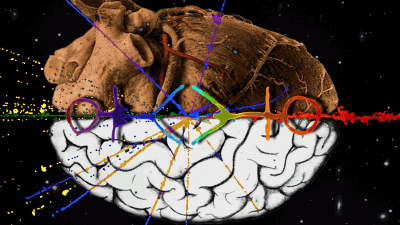It has been pointed out that the conventional theory that ``depression is caused by lack of serotonin'' is insufficient

Depression was previously thought to be caused by a lack of the neurotransmitter serotonin . However, clinical studies have revealed that the causes of depression are much more complex than just serotonin deficiency.
The serotonin theory of depression: a systematic umbrella review of the evidence | Molecular Psychiatry
https://doi.org/10.1038/s41380-022-01661-0
Is the chemical imbalance an 'urban legend'? An exploration of the status of the serotonin theory of depression in the scientific literature - ScienceDirect
https://doi.org/10.1016/j.ssmmh.2022.100098
The Cause of Depression Is Probably Not What You Think | Quanta Magazine
https://www.quantamagazine.org/the-cause-of-depression-is-probably-not-what-you-think-20230126/
A research team led by Joanna Moncrief of University College London found no evidence that serotonin deficiency causes depression or is associated with the onset of depression. thing. In addition, it is said that genetic studies have not found a relationship between genes that affect the amount of serotonin and depression. As a result, Moncrief and his team had to rethink the real cause of depression.
Serotonin attracted attention as a cause of depression because it was reported that iproniazid , which was developed as a treatment for tuberculosis in the 1950s, improved the mood of some patients. Subsequent investigations found that iproniazid inhibited the reuptake of serotonin-containing compounds called ' monoamine neurotransmitters ,' leading to the hypothesis that depression is caused by serotonin deficiency.
This hypothesis has since been applied to drug development and neuroscientific research, leading to the development of selective serotonin reuptake inhibitors (SSRIs) such as Prozac .
However, the effects of SSRIs differed from individual to individual, and the results were sometimes disappointing. By the mid-1990s, serotonin was questioned as a cause of depression. The family still believes that serotonin is the cause of depression and has prescribed SSRIs as antidepressants.
The mechanism of improvement in depression obtained in SSRI clinical trials is still unclear. Other neurotransmitters have also been implicated in depression.

In addition, research is also progressing on the genetics of depression, and while genes that increase the risk of depression have been discovered, the relationship between genetics and depression is complex, and further research is required.
In addition, research by Charles Nemerov et al. of the University of Texas at Austin has confirmed that patients with chronic inflammation such as
Therefore, as research on the relationship between chronic inflammation and depression progresses, the idea that ``the cause of depression varies from person to person, so treatment should be changed according to the individual'' is spreading.
Depression can be linked to chemical balances, genetic factors, brain structure, chronic inflammation, and more.

In the future, there will be no single treatment for depression, but a combination of cognitive-behavioral therapy , lifestyle changes, neuromodulation, avoidance of genetic triggers, and pharmacotherapy to treat each depressed patient. It is said that it will be possible to develop an optimal therapeutic approach according to
Treating depression with these approaches requires more time and effort, but ultimately can have a greater impact on people with depression.
Related Posts:
in Science, Posted by log1r_ut







